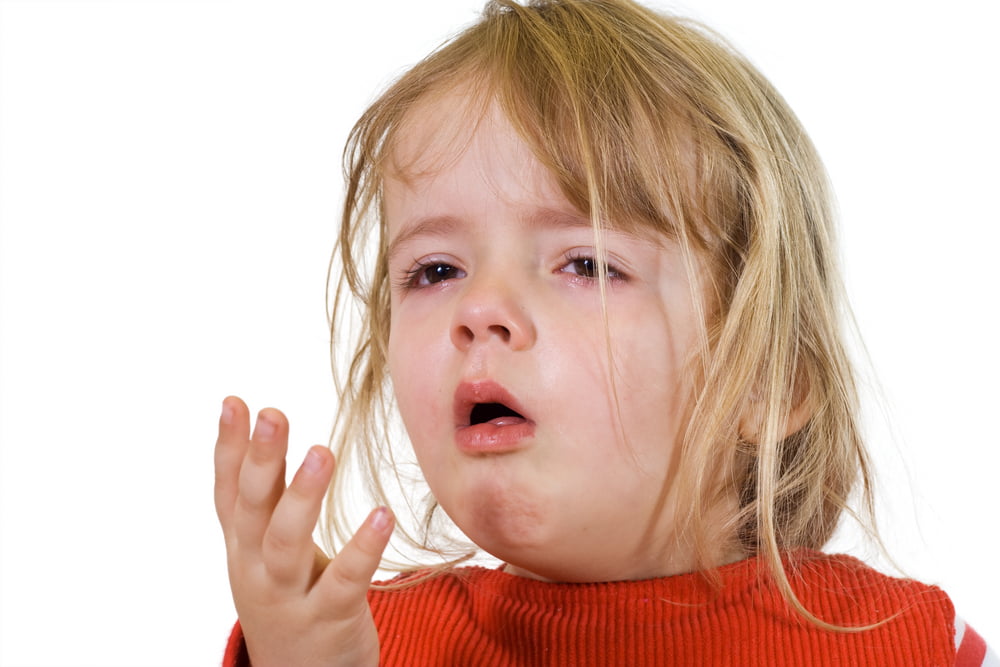Any cough that produces mucus is classified as a wet cough, also known as a productive cough (phlegm). If you have a wet cough, it means your body is generating more mucus than usual. One should get the best medicine for wet cough, to get relief faster.
Wet Cough and Nasal Symptoms in Children
The following are some of the most common signs and symptoms of wet cough in children:
- Inflammation of the nose
- Nasal discharge that is thick and discolored (runny nose)
- The back of the throat is drained (postnasal drainage)
- Blocked or suffocating (congested) Breathing through your nose is difficult because of a blocked nose.
- Around your eyes, cheeks, nose, or forehead, you may experience pain, tenderness, and swelling.
Other signs and symptoms to look out for include:
- Earache
- Your upper jaw and teeth are aching.
- Coughing or clearing the throat
- Throat irritation
- Breath problems
- Fatigue
Causes of Chronic Cough in Children
Coughing can be caused by a variety of factors, including:
Infection: Colds, flu, and croup can all leave children with a persistent cough. Colds cause a mild to a severe hacking cough, the flu the sometimes severe, dry cough, and croup a “barking” cough with noisy breathing that occurs mostly at night. Antibiotics are not used to treat viral infections, but other medications can be used to manage them.
Acid reflux: Coughing, frequent vomiting or spitting up, a bad taste in the mouth and heartburn are some of the symptoms that children may experience. Reflux treatment is determined by a child’s age, health, and other factors. Consider the following suggestions: Remove the foods that cause them to become irritable from one‘s nutrition. Eat at least two hours before going to bed.
Asthma: A wheezing cough that gets worse at night is one of many symptoms. A cough, which would seem with increased physical or during play, is another possibility.
Allergies or sinusitis: A lingering cough, as well as an itchy throat, runny nose, watery eyes, sore throat, or rash, can be caused by allergies or sinusitis. Consult your child’s doctor regarding allergy tests to determine which allergens are causing the problem and for advice to avoid them. Food, pollen, pet dander, and dust are examples of allergens. Allergy medication or allergy shots may be recommended by your doctor.
RSV (Respiratory Syncytial Virus) Cough in children
RSV is a virus that causes signs such as breathing difficulties. It’s the most common cause of bronchiolitis (inflammation of the small airways in the lungs) and pneumonia in infants. One should go with lifestyle and home remedies options, for a good surroundings.
Types of Coughs in Children ( Productive or Unproductive cough)
Productive Coughs: Coughs caused by a cold or flu will usually go away in a few days.
Unproductive Cough: A dry cough is a nonproductive cough. An ineffective cough can be created at the end of a cold or after being exposed to smoke or dust.
Acute Bronchitis in children
Bronchitis is a condition in which the lungs’ large endotracheal intubation (bronchi) becomes inflamed. The illness can be acute (short-term) or chronic (long-term) (chronic). The majority of cases are minor.
One should take the suggestion of the doctors to get cough remedies for kids.
How long should a wet cough last in a toddler?
For a few days, your child’s cough may become loose (wet), and he or she may cough up a great deal of phlegm (mucus). This is generally a sign that the illness is nearing its end. Coughs in children that last longer than 4 weeks should be evaluated further.
Parents should try Mucosolvan cough syrup for child, as they are easy to consume.






